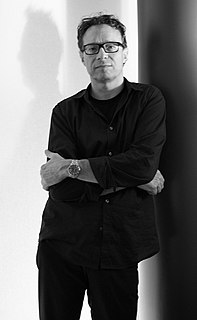A Quote by Fei-Fei Li
We talk a lot about building benevolent technology. Our technology reflects our values.
Quote Topics
Related Quotes
I am extraordinarily fascinated by the future of technology. We are in the early infancy of technology, and we have an opportunity to guide how technology develops and integrates into our lives. I talk a lot about the 'invisible interface,' or the idea that we can utilize technology without being absorbed into a screen.
I believe 3D is inevitable because it's about aligning our entertainment systems to our sensory system. We all have two eyes; we all see the world in 3D. And it's natural for us to want our entertainment in 3D as well. It's just getting the technology - it's really more the business model than the technology piece. We've solved the technology.
I am a former engineer and I was really excited about the possibility of building better technology to serve humanity. A lot of us as engineers have this belief that if you build a tool you somehow can empower humans economically or socially. The idea of building a better technology often means more efficiency.
What’s next for technology and design? A lot less thinking about technology for technology’s sake, and a lot more thinking about design. Art humanizes technology and makes it understandable. Design is needed to make sense of information overload. It is why art and design will rise in importance during this century as we try to make sense of all the possibilities that digital technology now affords.





































